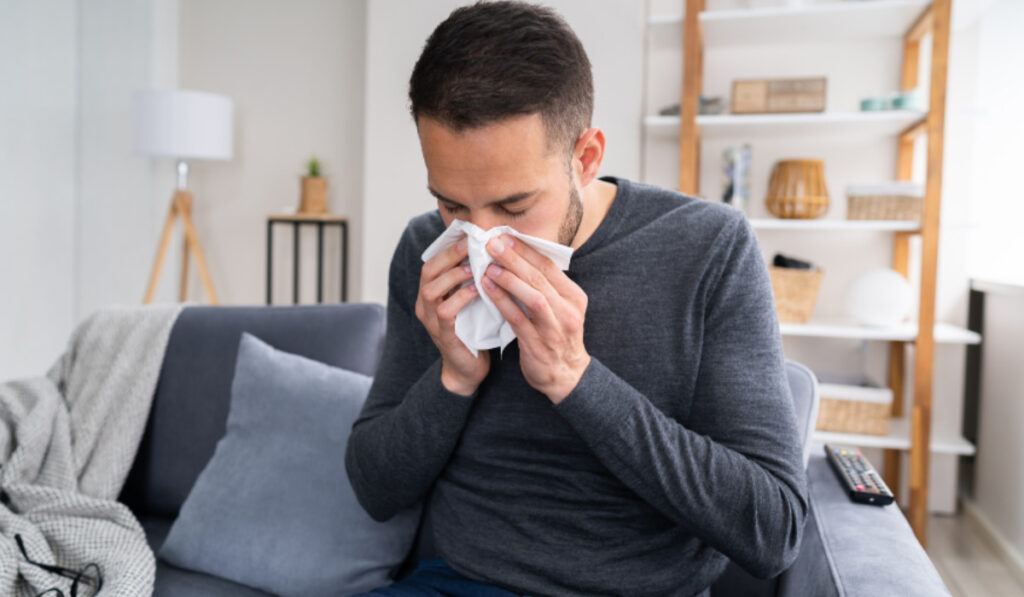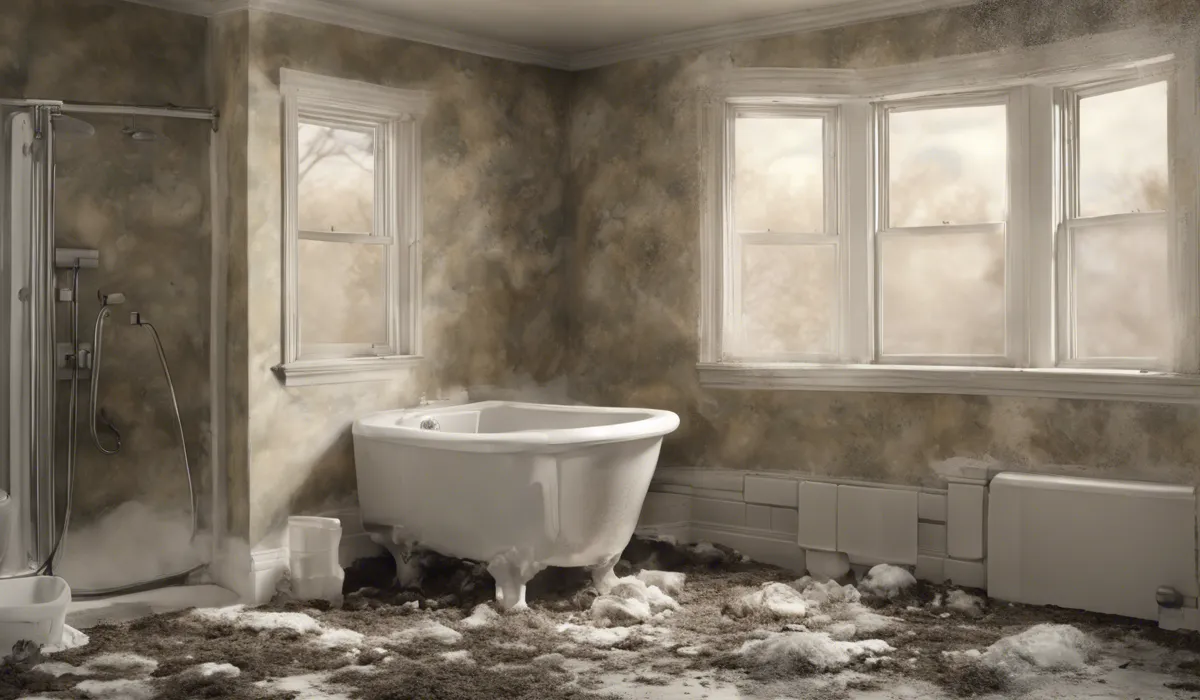Yes, mold can cause coughing. It triggers respiratory responses when inhaled, leading to coughing as a common symptom. Mold exposure irritates the throat and lungs, prompting a cough reflex to clear airways.
Understanding Mold and Its Health Implications

What Exactly Is Mold?
Mold is a type of fungus that can grow almost anywhere there’s moisture and organic material.
In our homes, mold often appears as spots in various colors, including black, green, or white.
Common types of mold found in homes include Cladosporium, Penicillium, Aspergillus, and the infamous Stachybotrys chartarum, also known as black mold.
Mold’s Growth and Spread Indoors
Mold spores are tiny and can enter homes through windows, doors, or even hitch a ride on clothing and pets. Once inside, they grow on damp surfaces.
Mold loves humid environments and can spread quickly if not controlled, particularly in places like bathrooms, basements, and kitchens.
Health Problems from Mold Exposure
When mold grows, it can cause health problems for the people living in the house. Breathing in mold spores can lead to issues like sneezing, runny nose, and even asthma attacks in some people.
Being exposed to mold can make you feel sick, especially if you have allergies or other health conditions.
Allergic Reactions and Respiratory Issues
Mold can cause allergic reactions in many people. These reactions include symptoms like itching eyes, coughing, and skin rashes.
For those with respiratory issues such as asthma, mold can be especially troublesome, causing more frequent and severe attacks.
Connection Between Mold Exposure and Coughing

How the Respiratory System Reacts to Mold?
When we breathe in mold spores, our respiratory system tries to get rid of them. This can lead to inflammation and irritation in our airways, making us cough.
The body coughs as a way to clear out the mold spores and protect our lungs.
Coughing as a Symptom of Mold Exposure
Coughing is one of the main signs that you might be breathing in mold spores. This cough can be dry or it might produce mucus.
It’s a sign that your body is reacting to the mold and trying to keep your airways clear.
Types of Coughs from Mold
Coughs from mold exposure can vary. Some people might have a dry, irritating cough that won’t go away.
Others might cough up mucus. The type of cough can depend on the person and how much mold they’ve been breathing in.
Who Is Most at Risk?
Anyone can be affected by mold, but some people are more at risk than others. People with asthma or allergies to mold can have worse symptoms.
Also, children, the elderly, and people with weakened immune systems might find it harder to deal with mold exposure.
Prevention and Remediation Strategies for Mold in Homes

Keeping Humidity Low and Ventilation High
To prevent mold, it’s important to keep the air in your home dry and fresh. Using dehumidifiers can help keep humidity levels low.
Make sure your home has good airflow by using fans and keeping vents clear to reduce the chance of mold growth.
Spotting and Stopping Mold Growth
Knowing what mold looks like and where it likes to grow can help you stop it before it spreads.
Look for discolored spots on walls and ceilings, especially where there’s been water damage or lots of moisture. Fix leaks and dry wet areas quickly to keep mold at bay.
How to Clean Mold Safely?
If you find mold, you can clean small areas with products like vinegar or bleach. Always wear gloves and a mask to protect yourself.
If the mold is in a large area, it might be safer to call professionals who know how to remove it without spreading spores around.
Long-Term Mold Prevention
To keep your home mold-free in the long run, fix any water problems and keep the air dry. Use paint that resists mold in damp rooms like bathrooms.
Check your home often for signs of mold and clean it up right away if you find any.
FAQs About Mold and Coughing
Can exposure to mold cause coughing?
Yes, exposure to mold can cause coughing as it irritates the respiratory system when inhaled.
Is coughing a common symptom of mold exposure?
Coughing is a common symptom of mold exposure, often resulting from the irritation of the throat and lungs.
Why does mold exposure make you cough?
Mold exposure makes you cough because inhaling mold spores irritates the airways, triggering a cough reflex to clear them.
Can mold-related coughing be chronic?
Mold-related coughing can become chronic if there is ongoing exposure to mold without remediation.
How do I know if my cough is caused by mold?
If coughing persists in mold-prone environments or improves when away from these areas, mold may be the cause. Consulting a healthcare provider for a proper diagnosis is recommended.
Final Thoughts
Mold exposure is a recognized health concern, specifically for the respiratory system. It can indeed provoke coughing by irritating the throat and lungs.
This irritation leads to a cough reflex, which is the body’s natural mechanism to clear obstructed airways, ensuring that breathing remains unimpeded despite the presence of mold spores.
